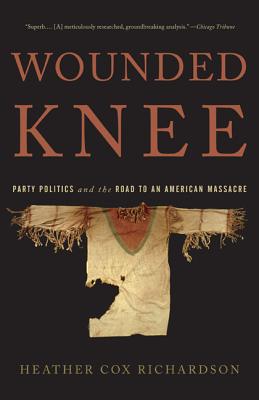Politics Chat - May 26, 2020
Link to Video on Facebook
Link to transcript

Today HCR spoke about 1) impact of the 1918 pandemic on the election that year; Ford's pardon of Nixon; ideology and compromise in politics; ideology vs principles; Social media manipulation and fake news
Links (underlined) related to topics covered in the chat
The political lessons of the 1918 pandemic
How the US Pulled Off Midterm Elections Amid the 1918 Flu Pandemic
Three Waves of 1918 pandemic
Broken mirrors: the First World War and modernist literature
Woodrow Wilson Versus Henry Cabot Lodge: The Battle over the League of Nations, 1918–1920
President Ford explains his pardon of Nixon to Congress
Mike Pence: 'I'm a Christian, a conservative, and a Republican — in that order'
compromise and principle
Ideology and principle
America 1844: Religious Fervor, Westward Expansion, and the Presidential Election That Transformed the Nation
James Birney
"In 1844, Birney received approximately 62,000 votes out of more than 2.5 million votes cast. The small vote total for the Liberty Party's candidate showed how small the abolitionist movement was in the North during this period. Birney's candidacy, however, may have won the election for Democrat James K. Polk and lost the election for Henry Clay of the Whig Party. Abolitionists tended to favor the Whigs. If the Liberty Party had not run a candidate, some of the 62,000 people who voted for Birney may have voted for Clay. Clay lost the election by fewer than 38,000 votes."....ultimately resulting in spread of slavery more widely in the West.
Biden, Sanders name leaders of their ‘unity task forces’ — including AOC
6 Prominent Indian-Americans Named To Joe Biden-Bernie Sanders Unity Task Forces
Exposing Russia’s Effort to Sow Discord Online: The Internet Research Agency and Advertisements
Nothing Is True and Everything Is Possible by Peter Pomerantsev review – Putinism and the oil-boom years
How fake news conquered the world
Frank Stanton page
An article HCR mentioned which includes material about Frank Stanton
Facebook and Cambridge Analytica: What You Need to Know as Fallout Widens
How to Identify and Defeat an Internet Troll

[From wikipedia] Richardson’s first book, The Greatest Nation of the Earth (1997), stemmed
from her dissertation at Harvard University. Inspired by Eric Foner’s work on pre-Civil War
Republican ideology, Richardson analyzed Republican economic policies during the war. She
contended that their efforts to create an activist Federal Government during the Civil War
marked a continuation of Republican free labor ideology. These policies, such as war bonds
and greenbacks or the Land Grant College Act and the Homestead Act, revolutionized the role
of the Federal Government in the U.S. economy. At the same time, these actions laid the
groundwork for the Republican Party’s shift to Big Business after the Civil War.

In this 2001 book, Richardson "focused on the “Northern abandonment of Reconstruction.” Building
on the earlier work of C. Vann Woodward, she argued that a more complete understanding of the period
required appreciation of class, not only race. As Reconstruction continued into the 1870s and
especially the 1880s, Republicans began to view African Americans in the South more from a class
perspective and less from the perspective of race that had driven their earlier humanitarianism. In
the midst of the labor struggles of the Gilded Age, Republicans came to compare “the demands of the
ex-slaves for land, social services, and civil rights” to the demands of white laborers in the
North. This ideological shift was the key to Republican abandonment of Reconstruction, as they chose
the protection of their economic and business interests over their desire for racial equality."
[From wikipedia]

In this 2007 book, "Richardson presented Reconstruction as a national event that
impacted all Americans, not just those in the South. She incorporated the West into the
discussion of Reconstruction as no predecessor had. Between 1865 and 1900, Americans re-imagined the
role of the federal government, calling upon it to promote the well-being of its citizens. However,
racism, sexism, and greed divided Americans, and the same people who increasingly benefited from
government intervention—white, middle-class Americans—actively excluded African-Americans, Native
Americans, immigrants, and organized laborers from the newfound bounties of their reconstructed
nation." [from wikipedia]

In this book, published in 2010, Richardson "focused on the U.S. Army’s
slaughter of Native Americans in South Dakota in 1890. She argued that party politics
and opportunism led to Wounded Knee. After a bruising midterm election, President Benjamin
Harrison needed to shore up his support. To do so, he turned to The Dakotas, where he
replaced seasoned Indian agents with unqualified political allies, who incorrectly assumed
that the Ghost Dance Movement presaged war. The Army responded by sending one third of its
force in order to avoid spending cuts from Congress. After the event, Republicans tried to
paint the massacre as a heroic battle to stifle the resurgent Democrats." [wikipedia]

In this 2014 book, Richardson "extended her study of the Republican
Party into the twentieth and twenty-first centuries. This book studied the entire life
of the GOP, from its inception in the 1850s through the presidency of George W. Bush.
The party’s founders united against the “slave power,” a small group of wealthy white men
who controlled all three branches of government. These Republicans articulated a new vision
of an America in which all hardworking men could rise. But after the Civil War, Republicans
began to emulate what they originally opposed. They tied themselves to powerful bankers and
industrialists, sacrificing the well-being of ordinary Americans. A similar process took
place after World War II, when Republicans sought to dismantle successful New Deal policies
and prop up the wealthy. However, in both cases, reformers within the party were able to
return the GOP to its founding vision of equality of opportunity, first Theodore Roosevelt
during the Progressive Era, and then Dwight D. Eisenhower, who enforced integration and
maintained the New Deal. The Nixon and Reagan administrations have represented yet another
fall from the GOP’s founding purpose. It's ironic, Richardson points out, that Republicans
treated Barack Obama with an unprecedented level of disrespect, as Obama's rise from humble
beginnings to the highest office in the nation embodied the vision of the original
Republicans." [wikipedia]

In her most recent publication, Richardson argues "that America was founded with
contradicting ideals, with the ideas of liberty, equality, and opportunity on one hand,
and slavery and hierarchy on the other. United States victory in the American Civil War
should have settled that tension forever, but at the same time that the Civil War was
fought, Americans also started moving into the West. In the West, Americans found and
expanded upon deep racial hierarchies, meaning that hierarchical values survived in
American politics and culture despite the crushing defeat of the pro-slavery
Confederacy. Those traditions--a rejection of democracy, an embrace of entrenched
wealth, the marginalization of women and people of color--have found a home in modern
conservative politics, leaving the tremendous promise of America unfulfilled." [wikipedia]